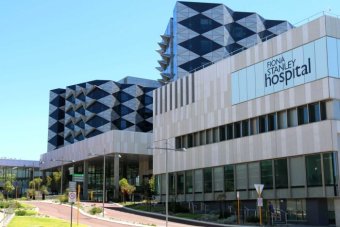The Australian Medical Association has delivered a devastating critique on the leadership and problems at Perth’s Fiona Stanley Hospital, saying quality patient care is only being sustained because of the professionalism of frontline clinical staff.
Ian Jenkins gave evidence to a parliamentary inquiry into the transition and operations of clinical service at Fiona Stanley, speaking as the chair of the AMA’s inter-hospital liaison committee.
Dr Jenkins told the committee there were still major problems at the new hospital, opened earlier this year, including a severe shortage of beds as patient numbers continued to exceed projections.
“Population has grown faster than they thought. We’re years behind. Fiona Stanley was meant to be this size in 2011,” he said.
“My view is that more beds on the Fiona Stanley site would help immensely. But pragmatically, there is no funding available.”
The opening of the hospital was delayed due to major problems with its initial information technology and communication system.
Dr Jenkins told the inquiry the IT and communications systems now in use were inefficient and unreliable.
Staff ‘relying on handheld radios in emergencies’
He said critical systems like staff duress alarms were still failing, leaving doctors and nurses to alert emergencies using handheld radios.
“Multiple times the duress system seems to be faulty or being repaired by the IT people, and in those times systems have to switch across to backup, which at times means the emergency teams carrying walkie-talkies or two-way radios,” he said.
Systems dedicated to patient records were also cumbersome and time-consuming.
“The feedback from our members is that there is a serious concern about the systems, and it’s a quantum leap [backwards] from where they were previously, where systems were reasonable – Royal Perth, Fremantle Hospital – to Fiona Stanley,” he said.
Dr Jenkins said one of the most significant problems at the hospital was a lack of stable leadership.
“We’ve had an acting director-general for two and a half years. We’ve had people acting in the roles of chief executive of South Metro Health Service,” he said.
“We now have an acting executive director at Fiona Stanley, and we’ve got an acting director of clinical services.
“We need substantive people appointed to those positions. I think we need people who want to be in those jobs and stay in them.”
Working conditions taking toll on staff
While there have been widely publicised breakdowns in patient safety at the hospital, Dr Jenkins said staff were maintaining standards of patient care despite immense difficulties.
“Despite all the problems, because of the people at the coalface and at the frontline there is still excellent care at Fiona Stanley, and that’s the feedback we get from 99 per cent of patients,” he said.
But he said the working conditions in the hospital were taking their toll on medical staff.
“Fiona Stanley has already lost some experienced staff and it may lose others in the future,” he said.
Dr Jenkin also expressed concern about the performance of Serco as the contractor providing non-clinical services at the hospital.
He said the confidentiality surrounding the contract mean it was difficult to know what services and staffing actually cost.


